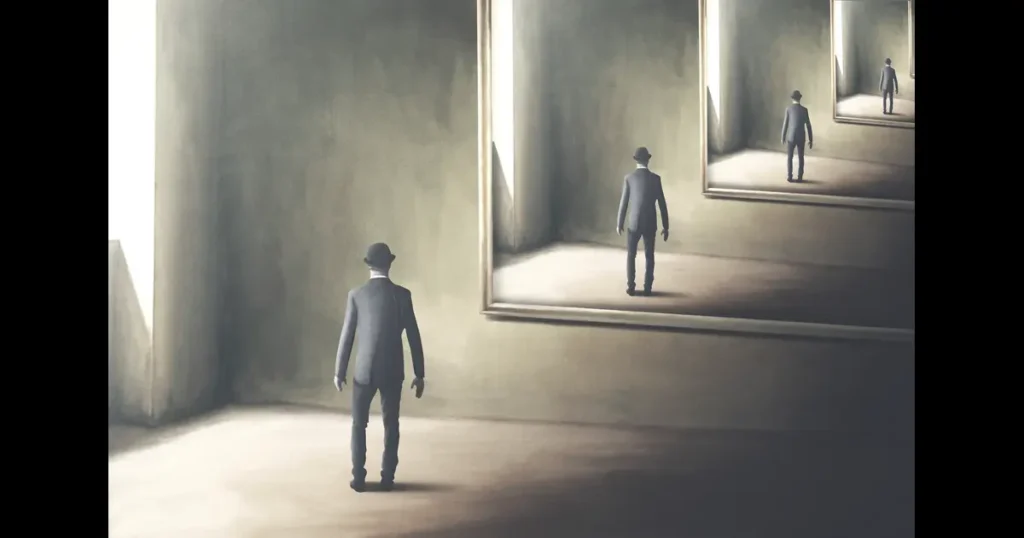
Unraveling the Mystery: What Is Déjà Vu?
Introduction:
Have you ever walked into a room, met someone, or experienced a moment and thought, “I’ve been here before,” or “this has happened already,” even when you know it’s your first time in that situation? If so, you’ve experienced déjà vu. Déjà vu is a French term meaning “already seen,” and it describes the peculiar sensation of feeling like you’ve experienced something before, even when you know you haven’t. In this article, we’ll delve deep into what déjà vu is, its potential causes, and how it impacts our minds. 🧠✨
Understanding Déjà Vu:
Déjà vu occurs in a fleeting moment, creating a strange sense of familiarity in a completely new setting. It is a cognitive anomaly, often leaving individuals puzzled and intrigued. The sensation typically lasts for a few seconds and can occur in people of all ages. Despite its widespread occurrence, the phenomenon of déjà vu remains one of the mind’s most mysterious functions.
- The Science Behind Déjà Vu:
Scientists and psychologists have been studying déjà vu for years, attempting to unravel its mysteries. One of the prevailing theories suggests that déjà vu happens due to a glitch in the brain’s memory system. The brain has different regions responsible for short-term and long-term memories. When a new experience has a striking resemblance to something in our long-term memory, but not quite exact, the brain might get confused, creating the sensation of déjà vu. Another hypothesis posits that déjà vu occurs when there’s a slight delay in the neural pathways, causing the brain to experience the current moment in a delayed fashion, making it seem like a memory. There’s also a theory that déjà vu is a result of the brain conducting a sort of “error-checking” process. When the brain detects any discrepancy in our perception of an event, it triggers the déjà vu sensation as a way to make us more aware and attentive. - Psychological Aspects of Déjà Vu:
On the psychological front, some experts believe that déjà vu is connected to our emotions and state of mind. Stress, fatigue, and an overactive imagination are considered significant triggers for déjà vu episodes. Individuals who travel frequently, have vivid dreams, and possess a strong imaginative capability are reportedly more prone to experiencing déjà vu. Interestingly, déjà vu is also linked to feelings of precognition or the sensation that one can predict future events. This can make déjà vu feel even more mysterious and uncanny, as it blurs the line between past, present, and future in our minds. - Déjà Vu and Memory:
Memory plays a crucial role in the experience of déjà vu. Some researchers believe that déjà vu happens when there is a temporary alignment between our current perception and a vague memory in our brain, creating a sense of familiarity. This is why déjà vu is commonly associated with places, people, or situations that might have similarities to our past experiences, even if we can’t consciously recall them. The role of memory in déjà vu also explains why the phenomenon is less common in older adults. As we age, our memory functions change, and the way our brain processes information alters, potentially reducing the frequency of déjà vu episodes. - Managing and Understanding Déjà Vu:
While déjà vu is a fascinating phenomenon, frequent episodes can sometimes cause distress or anxiety. Understanding that déjà vu is a common cognitive experience can help alleviate any concerns. It’s also essential to maintain a healthy lifestyle, as reducing stress and getting adequate sleep can potentially decrease the frequency of déjà vu occurrences. Engaging in mindfulness practices, such as meditation and deep-breathing exercises, can also help in managing déjà vu. These practices enhance our awareness and attention, potentially reducing the likelihood of experiencing déjà vu by keeping our brains focused and grounded in the present moment. - The Fascination and Mystery of Déjà Vu:
Despite its common occurrence, déjà vu remains one of the most enigmatic and captivating aspects of human cognition. It challenges our understanding of memory, perception, and time, sparking curiosity and wonder. The fleeting and unpredictable nature of déjà vu adds to its allure, making it a favorite topic of discussion in both scientific circles and popular culture. The mystery of déjà vu also lies in its subjectivity. Each person’s experience of déjà vu is unique, influenced by their memories, emotions, and perceptions. This subjective nature makes studying déjà vu a complex but fascinating endeavor.
Conclusion:
In summary, déjà vu is a perplexing cognitive phenomenon characterized by a fleeting sense of familiarity in a new situation. While its exact causes remain unclear, it is believed to be related to memory processing and neural pathways in the brain. Stress, fatigue, and an overactive imagination are also thought to contribute to the occurrence of déjà vu.
Understanding that déjà vu is a common experience shared by many can provide reassurance to those who encounter it frequently. By maintaining a balanced lifestyle, practicing mindfulness, and embracing the mystery of our minds, we can navigate the intriguing world of déjà vu with curiosity and confidence.
For those intrigued to delve even deeper into the enigma of déjà vu and explore a wealth of knowledge on mind-related topics, make sure to check out The Mind Insider. Your journey into the depths of the mind awaits! 🕵️♀️✨




